My Favorite Music
2023-07-11
OK, Let’s Talk Music
I own a pair of rather expensive headphones, which is one of the reasons I enjoy listening to music whenever I can.
Ideally, I like to listen to live music while writing.
I have a playlist of Chinese music that I recommend on Spotify. It contains some of my favorite Chinese songs. However, I find that copyright issues often limit the playlist, so I’ve migrated it to my blog and added brief introductions for each song. Note that all the music descriptions are my personal interpretations and not necessarily the original intent of the songs.
As I’ve mentioned in the playlist description, I dislike pretentiousness and fakery. To my knowledge, these songs are based on genuine experiences and self-reflection. If you’ve never listened to independent music from mainland China, this might be a good starting point. Viewer discretion is advised for sensitive individuals.
Currently, there are 60 songs on the list.
Won Fu: “A Night with Stars” - “A night with stars, makes me think of you”
Won Fu, led by Yao Xiaomin, is an independent band from Taiwan. This song, released in 2005, remains one of my favorites from them. The balance between the sweetness and bitterness in the vocals is just right. Even if you’re alone, lying on a hillside listening to this song will inevitably bring a smile to your face. The song is best enjoyed on Yangmingshan, where the poetic lyrics subtly hint at philosophy and love.
Bobby Chen: “Don’t Leave Me Alone Anymore” - “Even if one day we grow old, so old that our vision blurs, I want to write the most beautiful song in the world for you”
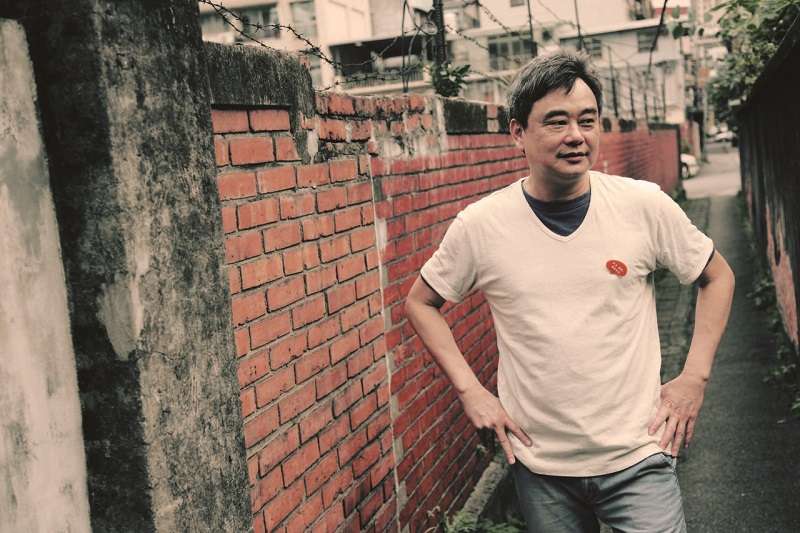
https://www.storm.mg/article/712203?page=1
Another poet, another love letter. The best Taiwanese love song writer. This guy is already 64 years old, and I wonder if I’ll ever get to see him perform live.
WUTIAOREN: “Don’t Worry Man!” - “Oh, so you’re the bird poop official, my apologies!”
The first time I heard about WUTIAOREN was on Taiwanese radio host Ma Shifang’s show “Ting Shuo,” featuring this song “Don’t Worry Man!” He spoke highly of WUTIAOREN’s music, but I initially thought it was just okay. I guess I have a point because I think they are more of a live band.
“Don’t Worry Man!” is a dialect song included in their second album “Some Other Scenery,” a double CD album with 21 songs. The use of English in the album title to hint at its real meaning and evade censorship is not new. However, what’s not easily noticeable is that the stage on the album cover is not just any stage; it’s the Xianweng stage in Lufeng County’s Wukan Village. This gives a glimpse into the album’s texture, or soul, which is rooted in vibrant local politics. I can’t help but wonder,
Wang Yang, the then Secretary of the Guangdong Provincial Party Committee, commented on the Wukan election, saying that the democratic election in Wukan was very solid in implementing the “Organic Law of the Village Committees of the People’s Republic of China” and the “Election Measures for Village Committees in Guangdong Province,” correcting the previous formality of the election in Wukan.
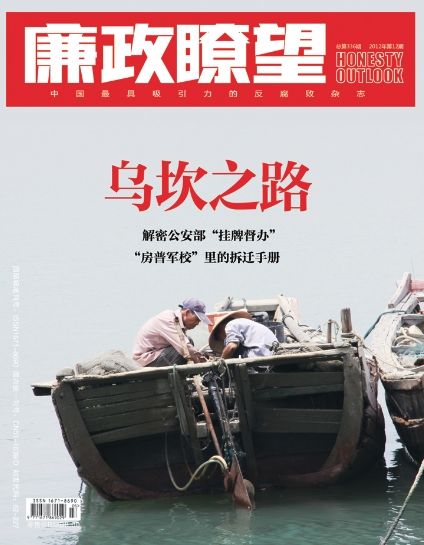
[1] Guangdong Wukan Village Director: I hope there is a good system to restrain me
The story takes place on a local stage, using absurd theatrical conflicts to show,
WUTIAOREN (or their fans) maintain their own website, About WUTIAOREN, which is one of the few band websites that manage to stay up-to-date. So if you’re interested, you can go read the annotations they wrote for each song, like this one.
Dirty Fingers: “Undercover Cop”
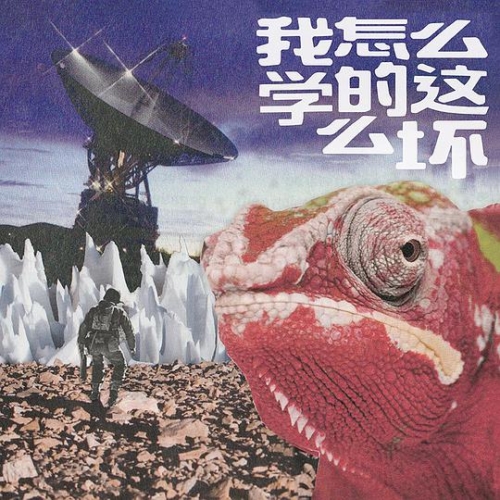
Dirty Fingers is one of China’s finest punk bands. This song is included in their most representative album released in 2017, “How Did I Become So Bad.” They use a subtle first-person narrative to describe the late life of CCP leaders. From “If I could, I’d shoot this era,” to “Where are you hiding, my medals?” The perspective shift from modern rebels to leaders is quite interesting. Essentially, they are the same kind of people in two different situations. Both worry about the wrinkles on their faces and both would brew a cup of goji berries but stay up until midnight. Besides the change in perspective, the lyrics also reveal the passage of time in the protagonist’s life, from a young man to a middle-aged or elderly person. From a Superman who would shoot the whole world, to an old man who has nothing but still cares about his medals, the detailed and vivid description is amusing.
AV Okubo: “My Big-Character Poster” - “You say, the world belongs to us.”
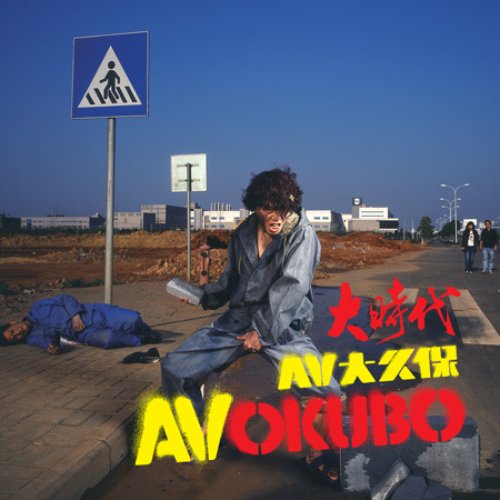
This song is from AV Okubo’s debut album. AV Okubo is a punk band formed by Lu Yan in Wuhan in 2006. The drummer’s name, perhaps to some extent, hints at the band’s perspective; he is called “Left Wing.” Later, Lu Yan and guitarist Tan Chao formed another newer electronic band, continuing their experimentation with electronics. Their new band, Hardcore Raver in Tears, even managed to collaborate with Gang of Four.
The song uses a first-person perspective and a quirky singing style to mockingly recite the content of Mao Zedong’s speech to students at Moscow University. The song title incorporates the first big-character poster written by Mao Zedong, which mainly criticized the capitalist roaders.

On November 17, 1957, at Moscow University, thousands of Chinese students and trainees gathered from all directions, looking forward to Chairman Mao’s reception. At around 6 p.m., when Chairman Mao and other leaders like Deng Xiaoping, Peng Dehuai, Ulanhu, Yang Shangkun, and Hu Qiaomu appeared in the auditorium of Moscow University, the whole place erupted in cheers. Chairman Mao happily walked to the front and sides of the podium, frequently waving and nodding to everyone. At the beginning of his speech, Chairman Mao told the students, “The world belongs to you, and also to us, but in the end, it belongs to you. You young people are full of vigor and vitality, like the sun at eight or nine in the morning. Our hope is placed on you.” He also taught the students, “Young people should have two qualities: vitality and modesty.” In his speech, Chairman Mao talked about the world, cited various examples, and put forward the famous saying, “The world is afraid of being serious, and the Communist Party is the most serious.” Chairman Mao’s speech was kind and amiable, witty and humorous. On and off the stage, there were questions and answers, and the hall was filled with laughter and laughter. (People’s Daily)
On August 1-12, 1966, the Eighth Central Committee of the Communist Party of China held its Eleventh Plenary Session. During the meeting, on August 5, Mao Zedong wrote “Bombard the Headquarters—My Big-Character Poster” in pencil on the edge of a newspaper. On August 7, after revising the draft, Mao Zedong added a title and attached it to a big-character poster by Nie Yuanzi and six others, which was printed and distributed by the meeting that day. On August 5, 1967, the People’s Daily officially published the full text. This big-character poster indirectly criticized “some leading comrades” like Liu Shaoqi, proposing that there was a “bourgeois headquarters” in the Central Committee of the Communist Party of China.
The full text published by the People’s Daily:
The first Marxist-Leninist big-character poster in the country and the commentator’s comment in the People’s Daily are so well written! Please comrades re-read this big-character poster and this comment. However, in the past 50 days, some leading comrades from the central to the local level have done the opposite, standing on the reactionary bourgeois standpoint, implementing bourgeois dictatorship, suppressing the vigorous cultural revolution movement of the proletariat, reversing right and wrong, confusing black and white, besieging the revolutionary faction, suppressing different opinions, implementing white terror, self-satisfied, enhancing the prestige of the bourgeoisie, and extinguishing the morale of the proletariat. How poisonous it is! Thinking back to the right-leaning tendency in 1962 and the wrong tendency of “left” in form but right in essence in 1964, isn’t it thought-provoking?
On January 1, 1967, students from Beijing’s higher education institutions held a rally in Tiananmen Square to “denounce” the “crimes” of Liu Shaoqi and Deng Xiaoping. In early January 1967, the Beijing Xinhua Bookstore and the Transportation Joint Company took joint action, taking the lead in publicly burning portraits of Liu Shaoqi and Deng Xiaoping in Tiananmen Square, and sending a telegram to the whole country to struggle against Liu and Deng. From October 13 to 31, 1968, the Communist Party of China held an enlarged meeting of the Twelfth Central Committee in Beijing, deciding to expel Liu Shaoqi, the “number one capitalist roader,” from the party forever, while Deng Xiaoping retained his party membership.
On April 30, 1987, Deng Xiaoping met with Alfonso Guerra, Deputy Secretary-General of the Spanish Workers’ Socialist Party and Deputy Prime Minister of the Government, and said: “…… As a result, the Cultural Revolution started in 1966 and lasted for ten years, which was a great disaster. Many old cadres were persecuted at that time, including me. I was the ‘second capitalist roader in power’ after Liu Shaoqi, Liu Shaoqi was the ‘commander-in-chief,’ and I was the ‘deputy commander-in-chief.’ Many strange things came out during these ten years.”
[1] Mao Zedong. Bombard the Headquarters—My Big-Character Poster. People’s Daily. 1967-08-05. [2] Deng Xiaoping. Learn from historical experience and prevent wrong tendencies. Selected Works of Deng Xiaoping·Volume III. Beijing: People’s Publishing House. 1993.
Luo Dayou: “Asia’s Orphans” - “Dear mother, what is this truth?”
Inspired by Paul McCartney’s “Mull of Kintyre,” Taiwanese music legend Luo Dayou arranged this slightly melancholic waltz with a snare drum, turning it into a march. With a soft yet sharp touch, and a firm yet naive emotion, he describes Taiwan’s awkward position in international politics and the confusion about the future.
“Asia’s Orphans” is included in Luo Dayou’s second creative album “The Future Master,” published in 1983 by Rock Records. This song is also the theme song of the movie “Alien Land,” adapted from the novel of the same name by Bai Yang. Although the movie describes the story of a group of Nationalist Army soldiers stranded on the Thai-Burmese border, it is generally believed that Luo Dayou’s motivation for creating this song was mainly influenced by the important Taiwanese writer Wu Zhuoliu’s novel “Asia’s Orphans.”
The era in which this song was created was just the late period of the Cold War when the confrontation between Western capital and communism was about to end. At that time, the Kuomintang government had not yet developed a so-called cross-strait policy, but Luo Dayou was able to see through the situation and write Taiwan’s isolated situation into the song. The interlude is interspersed with Liu Zonghui’s suona performance, and the end is accompanied by a children’s chorus. In the arrangement of the song, the desolation and innocence are juxtaposed, and Taiwan’s contradictory identity and situation are vividly expressed.
https://nrch.culture.tw/twpedia.aspx?id=10053
Cui Jian: “The Box” - “My ideals are there, my body is here.”
“The Box” is included in Cui Jian’s 1994 album “Balls Under the Red Flag.” This is a rap song that blends jazz and rock. The lyrics are straightforward, the narrative is both partial and complete, and the emotions are direct and unrestrained. It sharply points out the doubts and anger reflected in China’s political development. I find that every year there is a period when I need to go back and listen to this first man of Chinese rock’s albums, and I often make new discoveries. This song is one of my biggest gains in 2022. I personally think this song is definitely Cui Jian’s best attempt during the transition.
Wild Children: “Zao Zhi Dao” - “If I had known that your heart had changed, what’s the point of talking about love?”
Zhao Muyang’s “Yellow River Ballad” also used this line, which should be taken from the Northwest folk songs. Compared to Zhao Muyang’s ruggedness, the music of Wild Children, who settled in Dali, Yunnan, is more relaxed.
Frog Pond (Wachi): “Peacock (Kong Que)”. “Walking through the murky streets, the same plot unfolds for us”
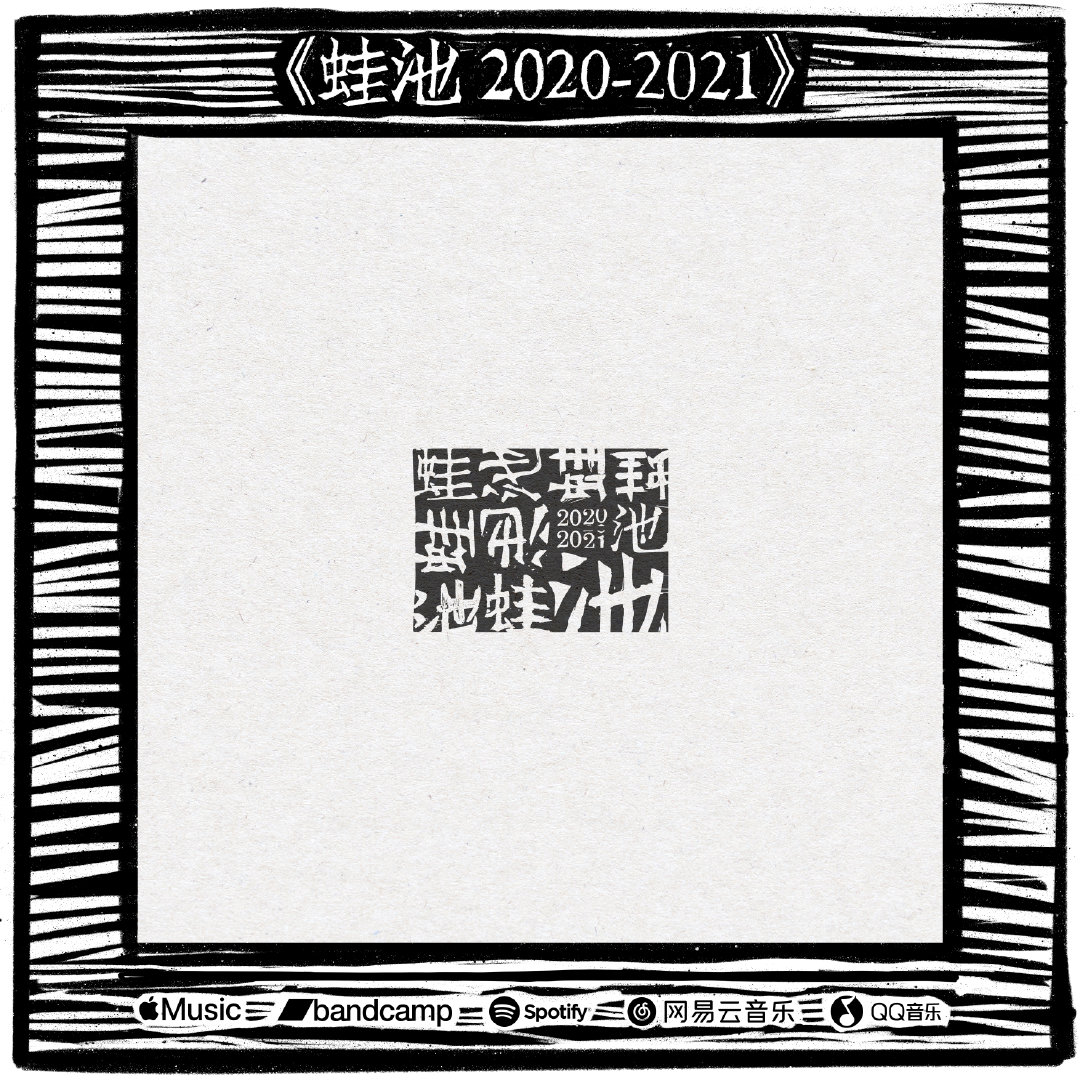
“Peacock” is one of the most emblematic songs by Frog Pond, narrating from the bleak mundane life, they seemingly possess a notable ambition, aspiring to voice out for others. From their initial song “Gift You A Dagger” to the 2023 album “Picnic,” Frog Pond has been showcasing relentless creativity and expressiveness. This is undoubtedly one of the band capabilities I cherish the most. Established by Jin Yiyi in a 20-square-meter room at the Humen Freight Center in Dongguan, Frog Pond is unarguably one of the finest rock bands in China, quite possibly unparalleled. Unlike the flimsiness of other bands, their roots are sturdy and rough, entrenched in that cramped and bustling freight center—I had the privilege to visit once. It has now turned into a small livehouse, though I’d rather not call it a livehouse; it resembles more of a room, a gathering spot for rock enthusiasts. The vitality of this place is effervescent, which, I believe, is one of the reasons why Frog Pond possesses such capabilities. If your everyday life is so stark and heart-thumping, all you need to do is to attempt to narrate these stories in an approvable, artistic manner.
Zhou Yunpeng: “Chinese Children”
“Don’t be the child of a Chinese person. Moms and dads are timid. To prove their heart of stone, they let the leaders go first when facing death.”
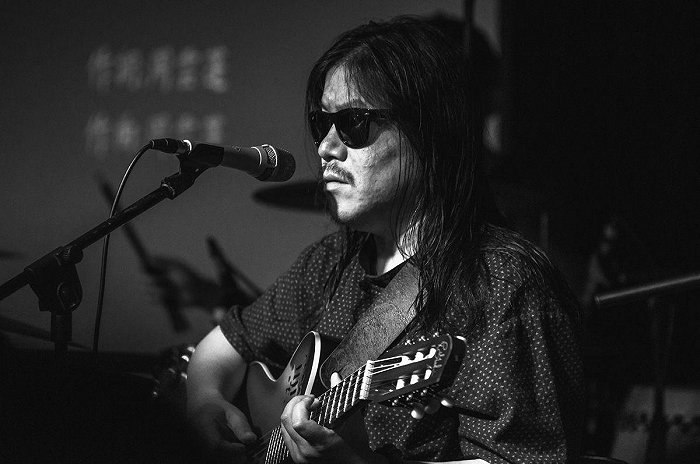
“Chinese Children” is a song by Zhou Yunpeng from an eponymous album that was not publicly released in 2007 and has now been removed from all platforms. Influenced by tragedies in mainland China involving children, including the Karamay fire, Zhou expresses his unbridled fury at the harm the Chinese inflicted on the younger generation in this song. It’s undeniable that such incidents are becoming rarer, but the song aptly captures the brutal facts that people can easily forget.
The song’s approach is quite naive, focusing more on connecting these tragedies through what could be seen as ingrained flaws — they are all connected to the most vulnerable part of human emotions — the phrase should have been “let women and children go first,” but it became “let the leaders go first.” These phenomena still continue in some ways, like killing pets directly during pandemic disinfection or taking away the only guardian of a baby for quarantine without allowing the child to go with them. Therefore, even now, listening to this song doesn’t feel alien or from a different era.
Hardcore Raver in Tears: “DongGuan” - “Fireworks brilliant, eating at the factory, gathering and scattering in windless autumn nights”
“DongGuan” is an early work by Hardcore Raver in Tears, first released in 2019 and included in their recent album “The Survivors Club.” I don’t know which band other than Frog Pond would be suitable to cover this song. If they could collaborate on this song someday, that would be wonderful. Another interesting thing is that lead singer Lu Yan posts a “missing person notice” at every performance because Zhou Yinlu, who co-created this song with him, has been out of contact for a long time since going to Japan. This song was originally written by Zhou Yinlu and the guitarist from Queen Sea Big Shark as a duo project, which Lu Yan adapted and released independently. Hardcore Raver in Tears’ temperament perfectly matches this song. In 2019, this song was recommended by many music critics.
JiaJiaTiao: “Blind Mountain”
This is a song themed around the non-fiction drama film “Blind Mountain.” The movie tells a gray-toned crime story centered on human trafficking. A college student is trafficked to a mountain village where she is forced to marry a local farmer and bear children. She attempts to escape multiple times but is repeatedly blocked from leaving. Even government police seem powerless in this isolated mountain village. Tragically, reality is even more horrifying and hopeless than the film and the song portray.